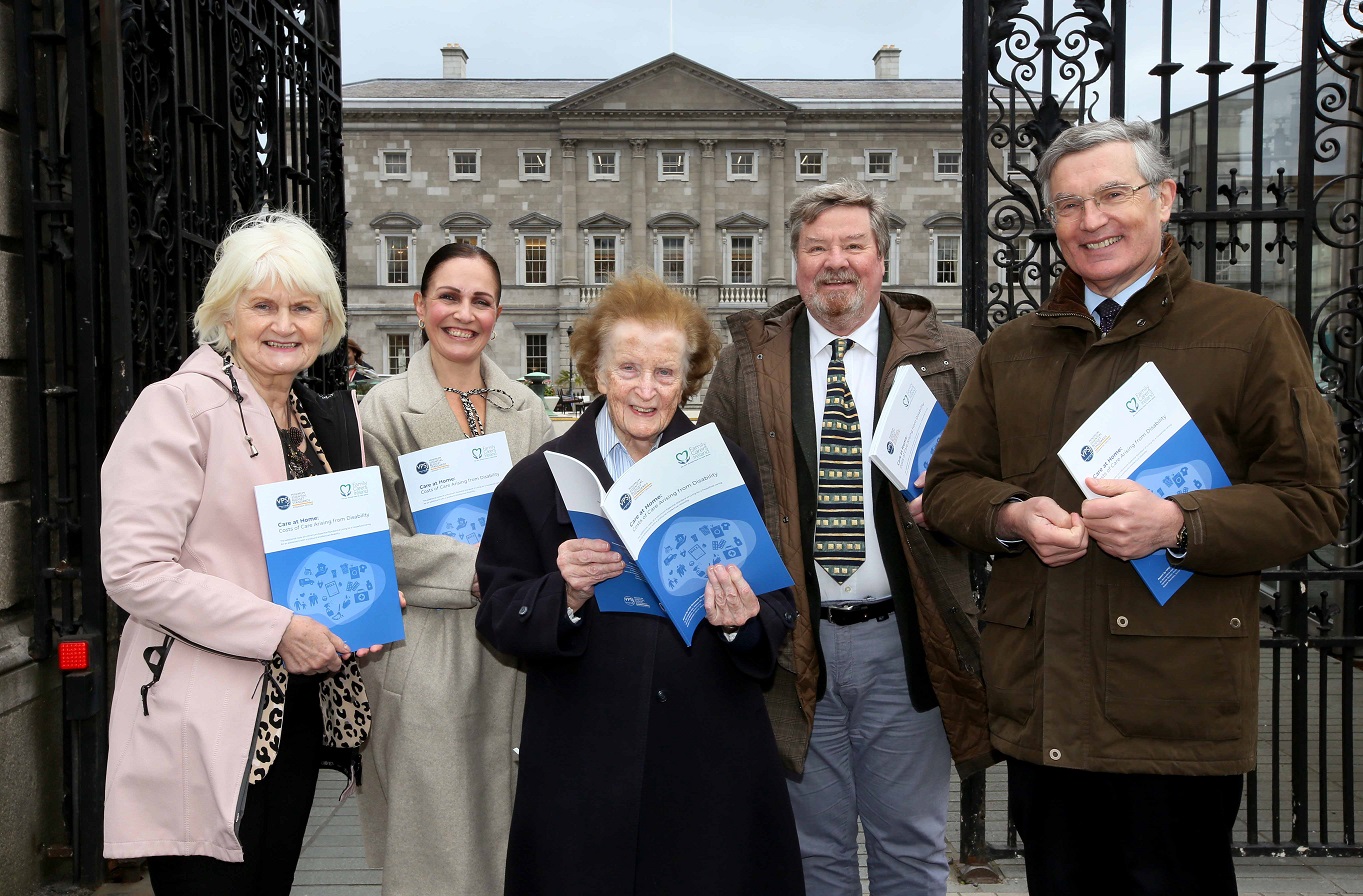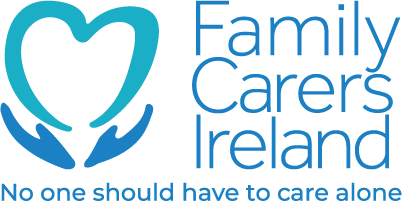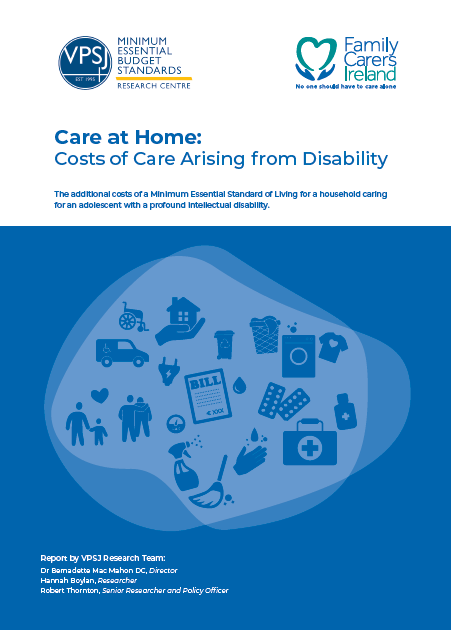-
National Freephone Careline
- About Us
- Carer Supports
- Home Care
- Work With Us
- News & Campaigns
- Policy & Lobbying
- Research
- Get Involved
- Membership
- Donate
New Report Highlights The Significant Hardship And Very Real Risk Of Poverty Faced By Family Carers
Posted on Tuesday 05 April 2022

Pictured are (from left) Marian Harkin TD, co-chair and member of the All-Party Oireachtas Interest Group on Family Carers; Sinead Tighe from Tallaght who cares for her son Daniel (15) who was born with the rare genetic condition Sotos syndrome; Dr. Bernadette Mac Mahon, VPSJ; Robert Anderson, Family Carers Ireland (FCI) board member and chairperson of FCI's Research & Policy Committee and John Dunne, FCI Chief Executive at the launch of ‘Care at Home - Costs of Care Arising from Disability’ which looks at the additional and often substantial direct costs faced by caring households. PHOTO: Mark Stedman
Tuesday 5th April 2022: Family Carers Ireland has today launched ‘Care at Home - Costs of Care Arising from Disability’ which looks at the additional and often substantial direct costs faced by caring households, but also the hidden costs of caring that are often unaccounted for, including the cost of foregone employment and the financial costs imposed on families when services are not available.
Undertaken by the Vincentian Partnership for Social Justice (VPSJ) on behalf of Family Carers Ireland, the report finds that when compared to a household without a disability, the household caring for a child with a profound intellectual disability faces a greater depth of income inadequacy.
The core Minimum Essential Standard of Living (MESL) costs for a two-parent household caring for an adolescent with a profound intellectual disability amounts to €752 per week, excluding housing. This is €244 higher than the MESL for a two-parent household with an adolescent child without additional caring and disability needs. While the methodology underpinning the study required a focus on a specific type of caring household, the findings are indicative of the additional costs faced by all of those caring for loved ones at home.
The areas with the largest additional related costs are transport, caring costs (e.g., cost of accessing essential therapies and respite privately), household goods, personal care, health, clothing, and household adaptations.
Dr. Bernadette Mac Mahon, Vincentian Partnership for Social Justice, said: “The evidence presented in this report is clear. It shows that, regardless of income, caring households face significantly higher costs than those of non-caring households of the same composition. The intensity of a caring role can place significant demands on families, which can make it difficult to combine paid employment with caring and frequently requires regular and significant additional care costs.
“Households caring for a child with a profound intellectual disability can avail of welfare supports to help offset some of the costs associated with caring, and while these are welcome, they do not adequately address both low pay and the additional needs arising from caring and disability.
“Nobody should suffer financial hardship because of their caring responsibilities. Individuals and families in caring roles should have an income which ensures a Minimum Essential Standard of Living in order to have a life with dignity. ”
Catherine Cox, Head of Communications and Policy, Family Carers Ireland welcomed the report findings saying: “This report provides an insight into the reality faced by caring families and reveals that much of the additional costs borne by such households arise due to a denial of what should be publicly provided supports and services such as respite, assessments, and care equipment.
“In fact, paying privately for services and supports has now become routine due to strict eligibility criteria, as well as challenges in accessing public services, which masks the true extent of waiting list figures and the inadequate provision of essential supports.
“With increasing costs, we are seeing unprecedented levels of stress and financial worries piled on caring families. Their financial resilience is being pushed to the limit. Many are forced to dip into savings if fortunate enough to have any, many more are pushed into debt and forced to cut back on essentials to keep the person they care for healthy and warm. The Carer’s Allowance is not a qualifying payment for Fuel Allowance and therefore the protections recently extended by Government to support households during this difficult time do not apply to most caring households.
“With everything they have contributed throughout the pandemic, it is simply wrong that family carers are now left struggling to put food on the table or heat their homes. They deserve so much better. To ensure family carers are supported during this extremely difficult time, we are calling on the Government to provide additional and targeted financial support for family carers - particularly for those on the lowest incomes.”

